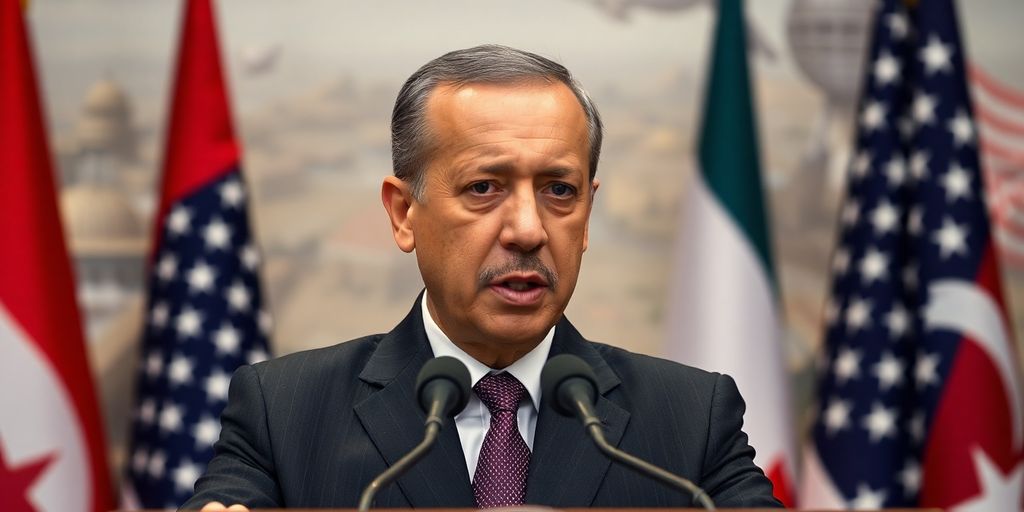Turkish President Recep Tayyip Erdogan has voiced strong criticism of U.S. policies in the Middle East, particularly under the Trump administration. He argues that the U.S. is making significant miscalculations that could exacerbate existing conflicts in the region. Erdogan’s comments come in the wake of ongoing tensions in Gaza and the broader Middle East.
Key Takeaways
- Erdogan claims the U.S. is making "wrong calculations" regarding the Middle East.
- He criticizes the U.S. for ignoring the region’s history and values.
- The Turkish President condemns Israel’s actions in Gaza as genocide.
- Erdogan calls for international measures against Israel’s government.
- He expresses skepticism about the effectiveness of a ceasefire agreement between Israel and Hamas.
Erdogan’s Criticism of U.S. Policies
In a recent statement, Erdogan emphasized that the U.S. administration is failing to understand the complexities of the Middle East. He stated that the approach taken by the Trump administration, particularly regarding the Israeli-Palestinian conflict, is misguided. Erdogan specifically mentioned the controversial plan to remove Palestinians from Gaza, which he described as a dangerous and unrealistic proposal.
Erdogan remarked, "Unfortunately, the United States is making a wrong calculation about our region. One should not be engaged in an approach that disregards the region’s history, values, and accumulation." This statement reflects a broader sentiment in Turkey regarding U.S. involvement in Middle Eastern affairs.
The Situation in Gaza
The ongoing conflict in Gaza has drawn international attention, with Erdogan labeling Israel’s military actions as genocide. He has called for a unified response from the Muslim world to address the humanitarian crisis unfolding in the region. Despite a truce agreement between Israel and Hamas, Erdogan expressed doubt about the likelihood of a lasting ceasefire, stating that he sees no real signs of peace.
The Role of the Muslim World
Erdogan’s comments also highlight the need for collective action among Muslim nations. He criticized the lack of a unified stance on the Gaza issue, suggesting that the Muslim world has not yet taken the necessary steps to support the Palestinian cause. This call for unity resonates with many in the region who feel that a stronger collective response is essential to address the ongoing violence and humanitarian crisis.
Conclusion
Erdogan’s remarks underscore the complexities of U.S. involvement in the Middle East and the challenges faced by regional leaders in addressing conflicts. As tensions continue to rise, the need for a comprehensive and historically informed approach to peace in the region becomes increasingly urgent. Erdogan’s criticism serves as a reminder of the diverse perspectives that exist regarding U.S. policies and their impact on Middle Eastern stability.






